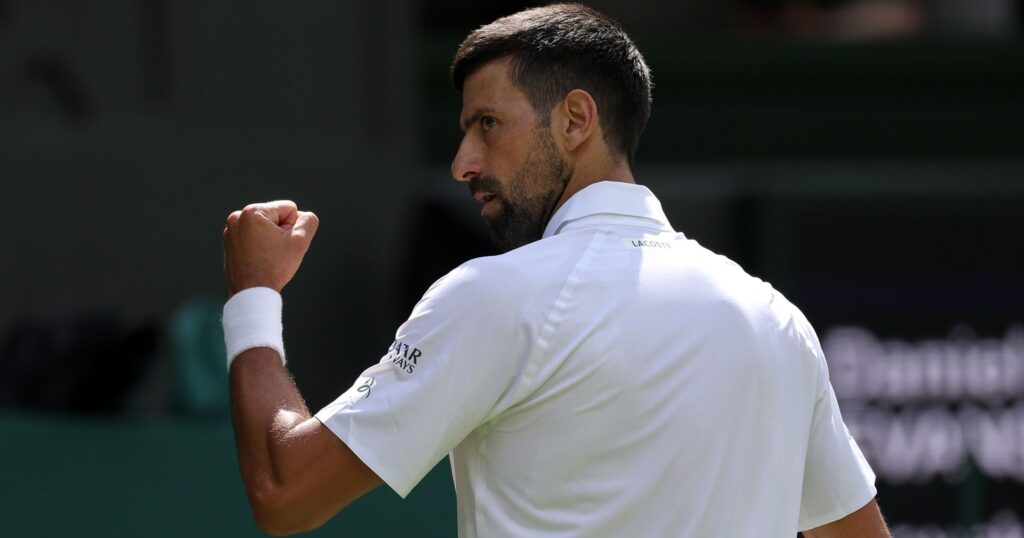In a highly anticipated second-round match at Wimbledon, Novak Djokovic faced off against British player Daniel Evans, a clash that held significant implications for both competitors. Djokovic, the defending champion and eyeing his record 25th Grand Slam title, had more than just pride at stake. He had to navigate the complexities of a player who, despite a dip in ranking over the past year, had previously shown his abilities on the court, notably defeating Djokovic in their sole encounter in Monte Carlo four years prior. Evans’ decision to pair up with Andy Murray for the doubles event at the Olympic Games, instead of defending his ATP 500 title at the Citi Open, had cost him precious ranking points, leaving him languishing at a lowly No. 154.
As the match unfolded, it quickly became evident that Evans, once on the brink of breaking into the top 20 of men’s tennis, approached Djokovic with a strategy driven by his natural instincts—charging to the net at every opportunity. In contrast, Djokovic, renowned for his baseline prowess and defensive capabilities, sought to maintain the upper hand by keeping Evans pinned behind the service line. Early in the match, the Serbian world number one demonstrated his elite status, building a quick lead at 3-1, yet Evans showcased remarkable resilience as he saved four break points in an impressive display of tenacity.
However, Djokovic’s relentless pressure and strategic gameplay began to tell as he focused on breaking Evans, while simultaneously maintaining a high level on his own service games. As the set progressed, it became overwhelmingly clear that Djokovic was in complete control. By the time he served to consolidate a 5-3 lead, Evans had only managed to win a mere three points on Djokovic’s serve, thus putting him against the wall. The defending champion demonstrated an efficient hold to love, ultimately taking command and ensuring that the first set slipped into his grasp, culminating in a decisive 6-3 scoreline.
The second set brought little respite for Evans. Despite showcasing moments of individual prowess that highlighted his undeniable talent, he was no match for Djokovic’s remarkable consistency and authoritative play. With a combination of relentless baseline rallies and calculated attacks, Djokovic seized an early break, putting Evans in a progressively more uncomfortable position. Frustration began to surface in Evans as he voiced his displeasure towards his player box, a palpable manifestation of the mounting pressure he faced.
As Djokovic continued to dominate, breaking Evans again to take a commanding 5-1 lead, the match began to appear like an inevitable procession towards Djokovic’s victory. The ten-time Wimbledon champion showcased the kind of form that made him a legend in the sport. Consequently, it became increasingly apparent that Evans’ Wimbledon campaign was nearing its conclusion.
In the final set, Evans struggled to keep pace with Djokovic’s commanding display. Although he managed to produce his sturdiest effort against Djokovic’s serve, culminating in two break-point opportunities in the final game, the Serbian’s resolve was unshakeable. As Djokovic delivered a final set devoid of points for Evans, he concluded the match with a 6-0 triumph, further emphasizing the lopsided nature of the contest.
This comprehensive victory not only propelled Djokovic into the next round against compatriot Miomir Kecmanovic but also served to reinforce his position as the tournament favorite. Viewers around the world were captivated by the intensity of the match, highlighting the incredible talent disparity that exists at the pinnacle of men’s tennis. The echoes of the Centre Court still resonated as spectators anticipated future clashes in the Wimbledon singles finals and the subsequent daily highlights broadcast live on TNT Sports and discovery+.












